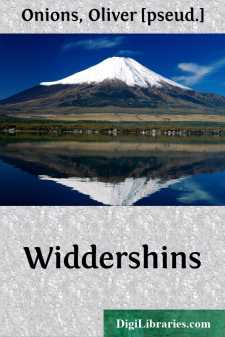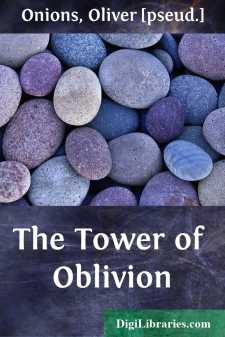Categories
- Antiques & Collectibles 13
- Architecture 36
- Art 48
- Bibles 22
- Biography & Autobiography 813
- Body, Mind & Spirit 142
- Business & Economics 28
- Children's Books 16
- Children's Fiction 13
- Computers 4
- Cooking 94
- Crafts & Hobbies 4
- Drama 346
- Education 46
- Family & Relationships 57
- Fiction 11829
- Games 19
- Gardening 17
- Health & Fitness 34
- History 1377
- House & Home 1
- Humor 147
- Juvenile Fiction 1873
- Juvenile Nonfiction 202
- Language Arts & Disciplines 88
- Law 16
- Literary Collections 686
- Literary Criticism 179
- Mathematics 13
- Medical 41
- Music 40
- Nature 179
- Non-Classifiable 1768
- Performing Arts 7
- Periodicals 1453
- Philosophy 64
- Photography 2
- Poetry 896
- Political Science 203
- Psychology 42
- Reference 154
- Religion 513
- Science 126
- Self-Help 84
- Social Science 81
- Sports & Recreation 34
- Study Aids 3
- Technology & Engineering 59
- Transportation 23
- Travel 463
- True Crime 29
Oliver [pseud.] Onions
Oliver Onions (1873–1961) was a British writer known for his contributions to the horror and supernatural fiction genres. He gained prominence with his ghost stories, particularly the novella "The Beckoning Fair One" (1911), considered a classic of supernatural literature. Onions also wrote historical novels, including "In Accordance with the Evidence" (1913) and "The Story of Ragged Robyn" (1913). His works often explored psychological themes, blending elements of the supernatural with complex character development.
Author's Books:
Sort by:
I The three or four "To Let" boards had stood within the low paling as long as the inhabitants of the little triangular "Square" could remember, and if they had ever been vertical it was a very long time ago. They now overhung the palings each at its own angle, and resembled nothing so much as a row of wooden choppers, ever in the act of falling upon some passer-by, yet never cutting...
more...
THE TOWER OF OBLIVION I I think it is Edgar Allan Poe who says that while a plain thing may on occasion be told with a certain amount of elaboration of style, one that is unusual in its very nature is best related in the simplest terms possible. I shall adopt the second of these methods in telling this story of my friend, Derwent Rose. And I will begin straight away with that afternoon of the spring of...
more...



